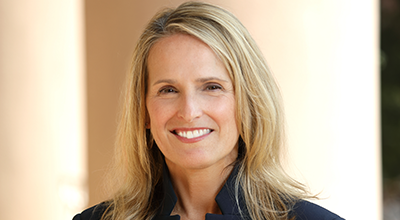I am NIMH: Q&A with Shelli Avenevoli, Ph.D.

Shelli Avenevoli, Ph.D.
NIMH Deputy Director
How would you summarize what you do?
I help run the National Institute of Mental Health (NIMH), so I do a little bit of a lot of things. I help with research priority setting. I help set policies, mentor staff, and manage people and NIMH and trans-NIH efforts. I look for ways to improve the institute in terms of function and science. I work closely with other institutes, federal agencies, and community partners. I communicate our work in various contexts, and of course, I do a lot of administrative reviews and approvals.
Helping the public understand what we do and why we do it provides hope for a better future for those living with mental illnesses.
What motivated you to join NIMH?
The mission! It's something I started early in my career—understanding the root causes of mental illness and ensuring that information is translated to the next generation of interventions. I decided to join NIMH because I felt working here offered the opportunity to make an impact on a much larger scale than I could have done as an individual.
How long have you worked at NIMH?
I have worked at NIMH for 22 years! I have been deputy director for about 8 years. Time has flown by.
What is your favorite part of your job?
It's the people. We have the best staff on the planet, and I say that often to people. I really enjoy collaborating with our team.
What's one thing you'd want the public to know about the NIMH?
I would love for the public to know how dedicated our staff is to the NIMH mission. Day after day, I see our staff working hard to advance our understanding of mental illness. It's so inspiring.
What is your proudest achievement at NIMH?
I'm proud of my contributions to several large youth mental health projects. As an investigator on the National Comorbidity Survey – Adolescent Study, I was able to help design and launch the project, which underscored the high rates and early onset of mental illness among American youth. I also contributed to the design and launch the Adolescent Brain Cognitive Development Study and the Environmental Influences on Child Health Outcomes Study, to name a few.
I'm also very proud of working collectively with the NIMH staff to improve our internal processes, policies, and procedures. This work has enhanced our communication, collaboration, and transparency across divisions and offices. It has improved staff engagement and morale. We have more to do, but I'm proud of our progress.
What's one life lesson you've learned from your career?
We go farther together. I love that phrase.
If you weren't doing this job, what would you do?
I would be continuing research on understanding youth mental disorders. That's where I started, and I'm very passionate about early development because it is critical to understanding the root causes of mental disorders. It provides us with the best opportunity to identify those at risk early, to intervene at the earliest possible time, and to minimize the long-term burden of mental illness.
In a different life, I might be making pottery on Cape Cod.
We're celebrating NIMH's 75th anniversary. What stands out in your mind about the progress we've made?
There are so many advances. But reflecting over 75 years brings to mind three overarching themes. One is the significant reduction in stigma against mental illness with each passing generation. Another is the improved understanding of the confluence of factors contributing to risk for mental disorders, including a better understanding of early neurodevelopmental influences. And the third is significant advances in treatments for mental disorders, including (but not limited to) the development of Cognitive Behavioral Therapy, effective antidepressants, and rapid-acting treatments.
What challenges will NIMH be addressing in the coming years?
One of the biggest challenges is the growing youth mental health crisis. Our kids today are living in an increasingly complex world. There are so many challenges and stressors. NIMH needs to meet the moment and find better ways to support kids early in their lives.
Why is it important for the public to see the work NIMH does?
Helping the public understand what we do and why we do it provides hope for a better future for those living with mental illnesses. One of the most important things we do is provide hope.
What would be your advice to a young person considering pursuing a career in mental health research?
It takes a village to be successful. Women sometimes think they need to climb the ladder on their own, but that's not the case. I encourage people to ask questions, seek advice, and find excellent mentors and supporters. I tell people to develop a network of collaborators who share their interests and passions and find colleagues with diverse perspectives to challenge them. Most importantly, carry it forward! For all the people who support you, make sure you support and build up others.
